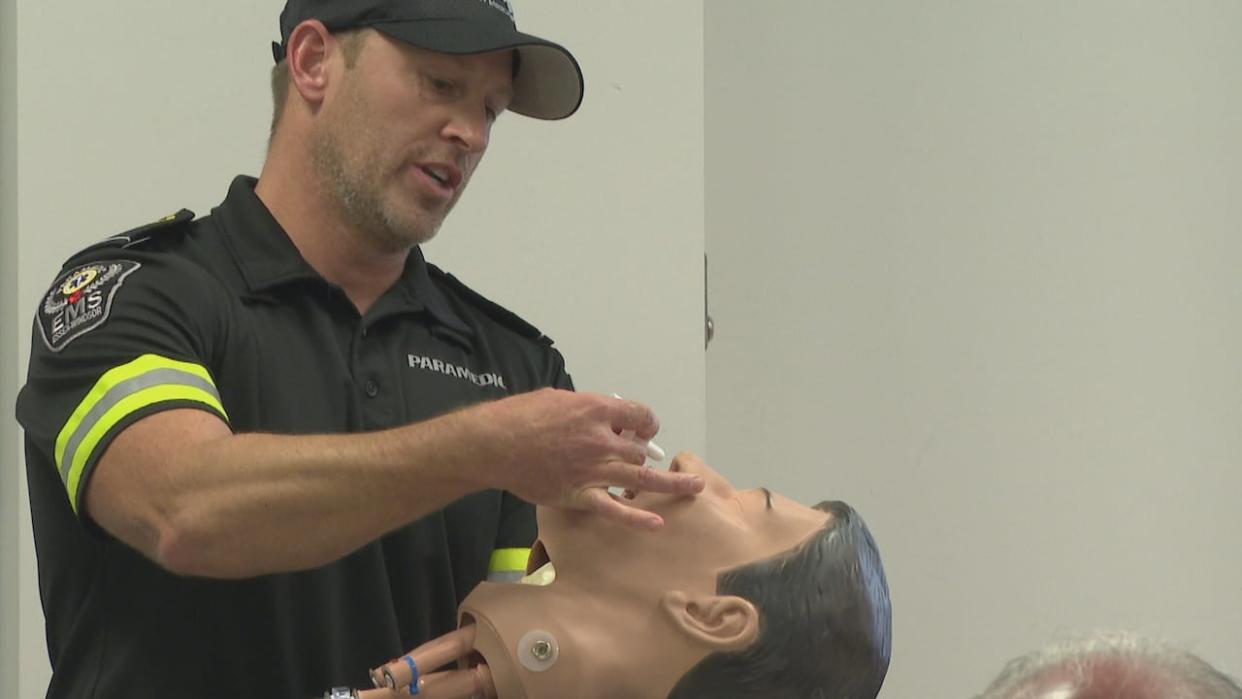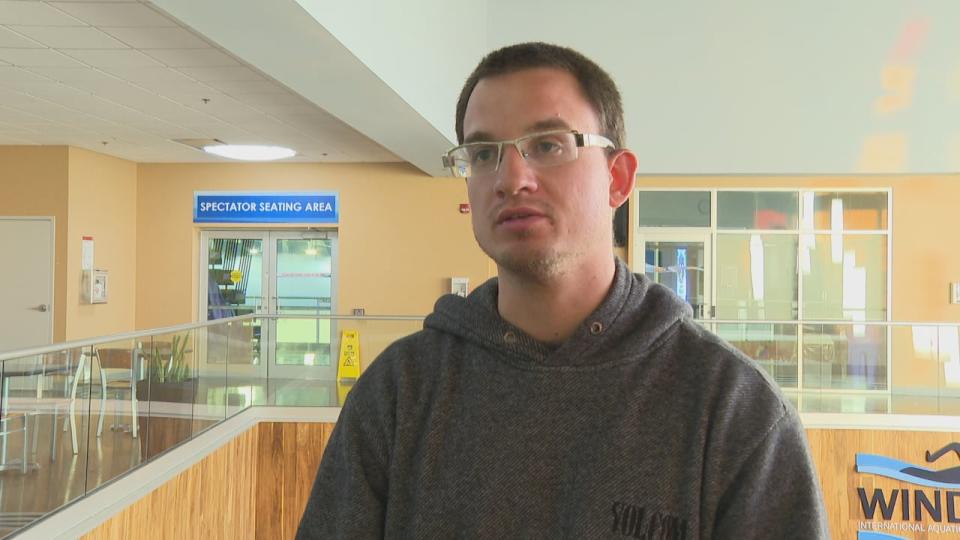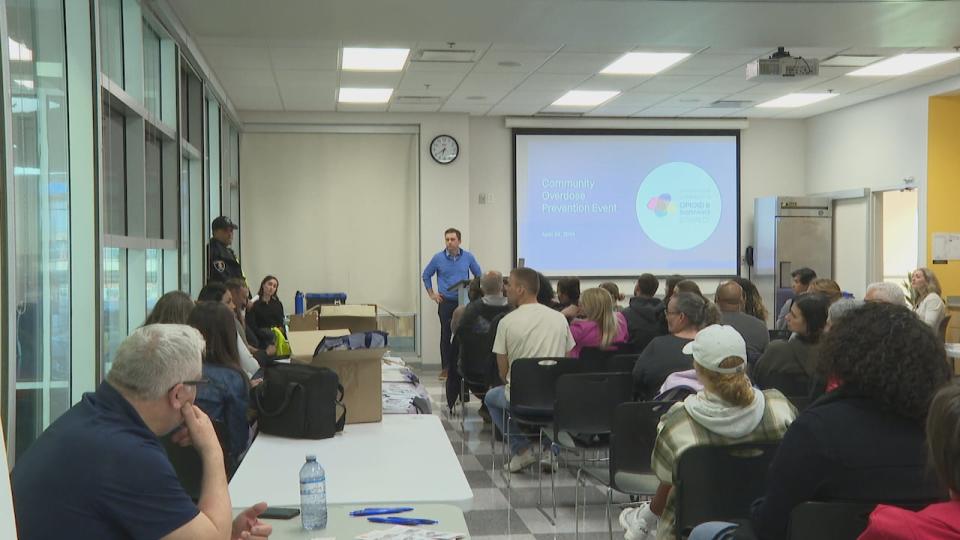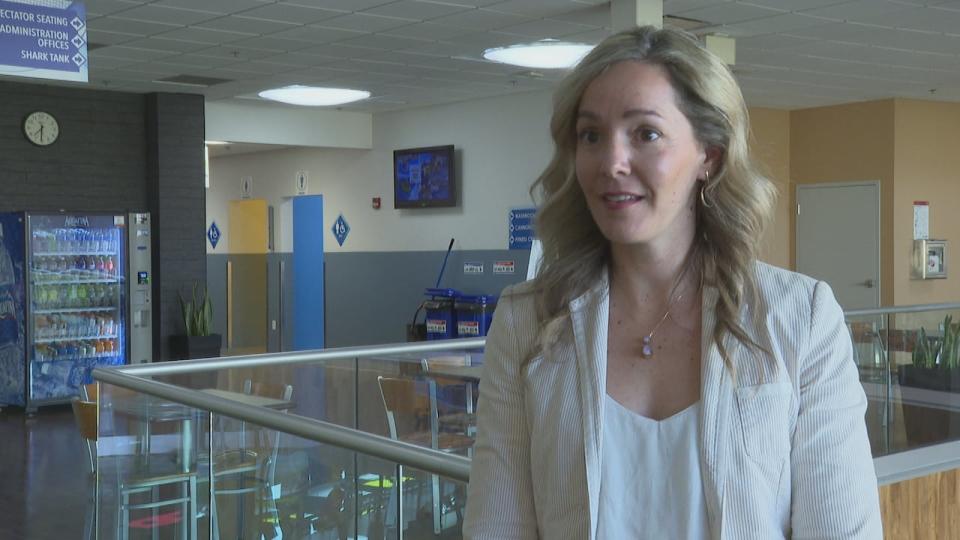Dozens in Windsor, Ont., come together for opioid overdose training and awareness

Joshua Burg recalls the moment he revived someone from an opioid overdose in the bathroom of a Toronto shelter.
Now in Windsor, Ont., Burg thinks it's important that more people understand how to help people in that situation.
"I had a naloxone kit ready and available to use on him," he said. "He was able to come to while the emergency responders were arriving at the location and he was able to receive a higher level of care from that point forward.
"I look back at, he's able to see another day and live another day … knowing that there are people out there that do care, that are concerned about your safety and well-being."

Joshua Berg is one of the community members who attended the opioid overdose prevention session. He has experience reversing an overdose, but was looking for even more knowledge and resources. (Jennifer La Grassa/CBC)
Burg was among dozens who attended a community overdose prevention session Wednesday by the Windsor Essex County Health Unit on how to help someone in the midst of an opioid crisis. That includes knowing how to administer naloxone, which can quickly reverse an overdose by blocking the effects of opioids.
It's the first session of its kind run by the health unit, with three others planned. Other sessions will be geared toward the construction industry and businesses.
While he has received training before, Burg said he's new to Windsor in the last year, and wanted to see what local resources and training had to offer. He said he was happy to see the many organizations, including the Canadian Mental Health Association and Pozitive Pathways, that also came to the table.
"I'm very grateful to take the information … home with me to go over it and to really read it and to see what I can do to better myself as a civilian and to pass the … knowledge to family or friends or colleagues of mine," Burg said.
He said there's more need for mental health and addictions spaces.
Barbara Mann sa shide came to the session to find out how to help more people after losing her own daughter to an opioid overdose.
"I remember her first overdose and I had no clue how to use Narcan," Mann said. "It was a year to the day of the accident that destroyed her life and got her addicted to fentanyl.
"I remember calling 911 and looking down on the couch and the naloxone was there. I used it, I had no clue how to do it but it worked."
Mann, who said she herself is 20 years sober, said the knowledge of how to use naloxone is "crucial."
"That's why I wanted to come tonight, to see if I could help the community. Hopefully I can make a difference in the community."
Randy Meyer, who works at Windsor's Downtown Mission, was at Wednesday's event to learn to administer naloxone.
""I've seen everything they talk about," he said of his experience working at the Downtown Mission. "As we walk around the city we see this happening... people need to know how to save a life if they come across it. Time matters."
Jennifer Bradt, chronic disease and injury manager with the Windsor-Essex County Health Unit, helped run Wednesday's session.

More than 50 people attended a community overdose prevention session hosted by the Windsor-Essex County Health Unit. (Jennifer La Grassa/CBC)
"We've decided that this is a priority because we've been seeing an increase in opioid overdoses, really, over the years," she said.
In 2022, the latest year annual data is available from Ontario Public Health, there were 113 opioid-related deaths in Windsor-Essex.
"We're really hoping to increase awareness, increase confidence in community members actually being able to administer naloxone, this life-saving medication, when they see someone who is in need," she said.
The session also included other harm-reduction techniques, including how to use drug-testing strips, Bradt added.
More than 50 people attended the sold-out session. Bradt said one of the most important pieces of the night's events was hearing more people's stories, decreasing stigma.
"I think it's great to see everyone come together for such an important issue … to be able to just increase that knowledge, skill level of community members to be able to actually provide this life-saving medication, have some drug test strips."

Jennifer Bradt is the manager of chronic disease and injury prevention with the Windsor-Essex County Health Unit. (Jennifer La Grassa/CBC)


